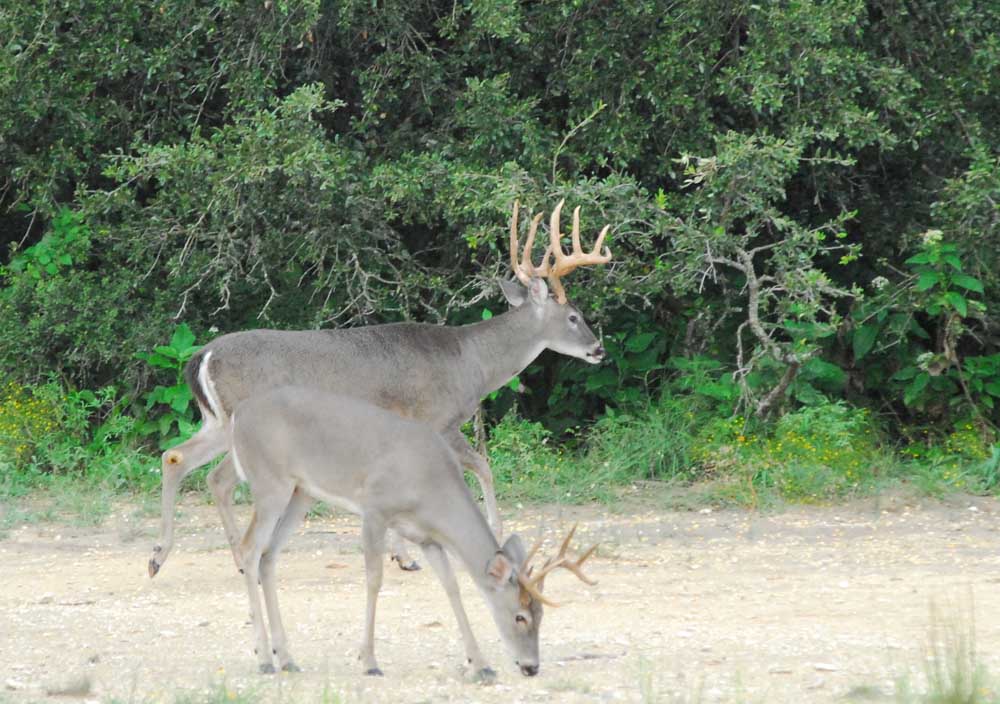Season openings mean different things to hunters
Published 10:01 pm Friday, October 5, 2018

- Hunting means a lot of different things to hunters, but just being outdoors and seeing nature is always important. (Steve Knight/Staff)
CAMP VERDE — I went on my first deer hunt of the year last weekend. Working with Managed Lands Deer permits, I was looking for does on the Camp Verde Ranch.
It did not work out as planned. With more than 10 inches of rain in the area since the first of September, conditions have changed from drought-like to lush. The deer were able to find plenty of forbs growing in the fields to eat and did not have to come to feeders.
Trending
After watching it rain again most of Saturday, I was back in the blind Saturday afternoon waiting for a feeder to go off. When it did, nothing happened. There was no rush of deer to feed on the corn like there might have been a few weeks earlier. Eventually four bucks sauntered up, two nice mature ones and two youngsters. Except for a group of turkey gobblers, that was it for about 30 minutes.
The sun was setting fast when 400 yards south of the blind I saw deer seemingly popping up out of nowhere. I could make out two really good bucks and nine does and fawns. I knew there was little chance they would make it into shooting range before dark, but a slow day suddenly became interesting.
It was not that I was hoping to get a shot as much as I was fascinated watching the deer just show up. The bucks, even at that distance, were magnificent to look at. The fawns are a sign that the management effort on the ranch is working. Fawn survival in a bad year looked good.
I never get tired of watching wildlife.
None of the deer made it by dark-thirty. It was pretty much the same story the following morning before I left the ranch.
Last weekend’s opening of the Texas deer season for bowhunters and those with MLDPs was actually the third hunting season to open this fall. Dove season opened in September and the abbreviated teal season has come and gone. Squirrel season opened Oct. 1 in East Texas.
Trending
Of course the big seasons are still to come with the opening of the regular deer season and duck season Nov. 3 and quail season Oct. 27.
Hunting has changed a lot over the past 50 years. There are a lot of reasons ranging from cost and opportunity to simply a desire to do something different. Technology has had an impact as well. No longer is a day of deer hunting confined to sitting on a 2X6 nailed to two tree limbs, or is duck hunting defined as standing waist deep in frigid water in leaky, non-insulated waders.
Those who do not hunt, especially those who do not know hunters, cannot wrap their head around the importance of hunting to the men and women who annually buy a license.
Of course it is different for everyone. For some, it is a tradition not unlike Thanksgiving meals and football. For some, it is the challenge whether it is training dogs for the hunt, practicing management for deer or just pushing through a physical challenge. For others it is the escape from a cubicle to somewhere, anywhere where they can watch the sun rise and set.
In 1944, Spanish philosopher Jose Ortega y Gasset wrote one of my favorite quotes about hunting. “In our rather stupid time, hunting is belittled and misunderstood, many refusing to see it for the vital vacation from the human condition that it is, or to acknowledge that the hunter does not hunt in order to kill; on the contrary, he kills in order to have hunted.”
Even then, at least in Europe, it seems modern man had forgotten the role and importance of hunting. Today, non-hunters in the U.S. wonder why we hunt, and especially what is often called trophy hunting. They never see the dollars spent that put a value on wildlife, the jobs created and families fed, whether it is the hunter’s family or others who receive donations of meat. Last year my family provided more than 4,200 servings of protein from venison for ourselves, friends and through Hunters for the Hungry.
And the good news is that there is a new generation getting into hunting simply for the field-to-table prospect of game for their family and friends. They represent the future of hunting and good for them.
For those who care, extremists do not threaten hunting. Their numbers are too small and they are considered, well, too extreme. The bigger threat is from the lack of recruitment and even more by not educating non-hunters about the importance of hunting to wildlife populations worldwide.
That brings up another favorite quote, “I am a hunter. I love animals.”



